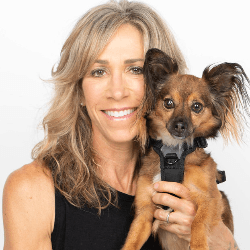5 Ways Owning a Dog Is More Expensive Than You Think

Owning a dog is great. Long walks, unconditional love, frisbee in the park — and all for the low cost of kibble, a leash, and maybe a trip or two to the vet.
But is that really all?
Chances are, owning a dog is more expensive than you think. According to a 2017 report, the cost of owning a dog is a whopping $42,000 for lifetime care costs. For most people, the report found, this is seven times more expensive than expected. Additionally, the first-year cost of owning a puppy runs upward of $1,400, according to the American Society for the Prevention of Cruelty to Animals (ASPCA).
So what are the costs that most potential dog owners overlook? We asked four pet experts for the hidden costs that most often take people by surprise. Here’s what they had to say.
Hidden expense 1: health care
Sara Ochoa, DVM, veterinarian and veterinary consultant for DogLab
The cost of pet health care depends on your location and which clinic you go to. Some low-cost clinics are also funded by grants that can vaccinate pets for less than a regular veterinary clinic. Also, a dog [owner] who lives in New York City is going to pay more for vaccines than a dog [owner who] lives in the country. The price for vaccines can range from less than $100 to over $500; this would all depend on what vaccines the dog needed and where they lived.
When getting a dog, it is best to consider the cost of owning the dog. Owning a small dog usually costs way less than owning a large dog. Large dogs eat way more, and if they get sick, usually cost more to treat due to the amount of medication they need.
Pet insurance is a great way to help with the cost. Pet insurance can cost upwards of around $100 a month. Most pet health insurance also covers wellness, such as vaccines, spay/neuter, heartworm, and flea prevention. If an owner takes advantage of all [the services] their insurance will cover, they can really benefit from pet insurance. If you have trouble figuring out which policy would be best for your pet, ask your vet for help.
When looking for pet insurance, there are many different companies that you can choose from; it is best to shop around and find the best plan that fits your needs and budget. Some are just there for accidents, and some even cover routine wellness services.
If an owner has a low income, a low-cost vaccine clinic will help them make sure their pets are vaccinated and have flea, tick, and heartworm prevention.
Hidden expense 2: spay/neuter
Danel Grimmett, DVM, Sunset Veterinary Clinic
One big-ticket expense is a spay or neuter. Depending on the clinic and size of pet, the spay/neuter can range from $200-$800. By adopting a dog or cat from a shelter, this cost will be covered within the adoption fee. Along with the surgery, pets who are adopted from the shelter will have already been tested and treated for common parasites, as well as being current on their vaccinations for their age.
Often we hear, “I just spent $2,000 on this dog. I don’t have the money to vaccinate and spay them!” This is very frustrating to hear as a veterinarian. Pets are not hand bags; they are like children. Bringing them home is just the beginning of taking care of them.
Hidden expense 3: behavioral issues
Joan Hunter Mayer, certified professional dog trainer at The Inquisitive Canine
A few big-ticket items related to dog training and behavior usually result when dogs develop behavioral issues that have to be undone. These challenges usually have to do with fear and aggression … Prevention is key in helping to keep these types of behavioral issues from developing. Of course there is no guarantee, but training can certainly help decrease the risk ...
For cases such as dog-dog or dog-human aggression, costs can get up into the thousands, depending on how severe the case is; how compliant and consistent the owners are [with training]; and the dog, as each is unique.
Hidden expense 4: grooming
Li-ran Bukovza, founder of PuppyTip
Grooming is another expense that can add up quickly, particularly if you have a dog with longer hair. Of course, you can brush them at home yourself, but a thorough, professional grooming is generally recommended about once a month. This helps prevent matting of the hair, dirt, and dander build-up, etc.
Depending upon how big your dog is and how thick their fur is, you can expect to pay anywhere from $40 - $100 per grooming session. As mentioned before, you can minimize this expense by keeping up with good daily grooming habits at home.
Hidden expense 5: pet sitting
Li-ran Bukovza, founder of PuppyTip
Finally, many dog owners are electing to utilize pet sitting services rather than leave their dog home alone or in a kennel. Pet sitters tend to make your dog more comfortable, as they provide companionship and prevent loneliness. The best part is, they come to your house, so your dog gets to stay in his own environment. Pet sitting fees vary, averaging about $40 a day, or more for an overnight session.
Bottom line
Dogs are part of the family. Prepare for unexpected costs by budgeting in advance and considering pet insurance.

Li-ran Bukovza is the founder of PuppyTip, a dog advice website designed to inspire and educate curious dog owners on how to build a happier and healthier relationship with their pup.

Danel Grimmett, Dr., has been a member of the Sunset Veterinary Family since 2009. Her experience covers a wide span of clinical settings and includes emergency medicine and small, exotic, and mixed-animal practices, both in the United States and overseas. In 2009, her family moved back to Oklahoma, where she joined Dr. Tim Kennemer at Sunset Veterinary Clinic.

Sara Redding Ochoa, DVM, graduated from St. George’s University with a Doctorate of Veterinary Medicine in 2015. Since veterinary school, she has worked at a small animal and exotic veterinary clinic in east Texas, where she has experience treating a wide range of different animals. She currently sits on the advisory board for DogLab.

Joan Hunter Mayer’s life has gone to the dogs, ever since Inquisitive Canine was founded in 2005 — and she couldn’t be happier. A certified professional dog trainer and behavior consultant, and certified separation anxiety trainer, Mayer not only loves seeing her canine students succeed, but enjoys empowering dog parents with a valuable education to enhance their relationships with their dogs for life. She offers dog training, behavior consulting and community education programs locally in Santa Barbara, as well as online coaching globally.



